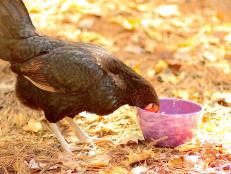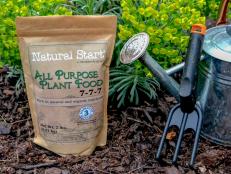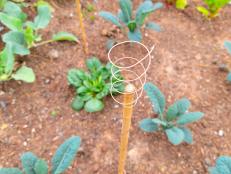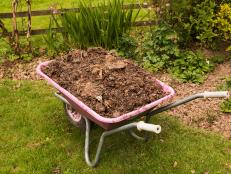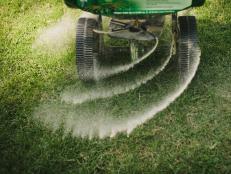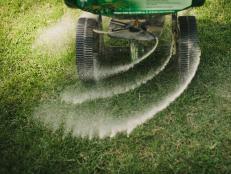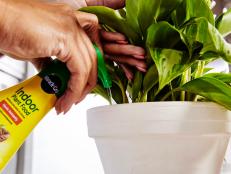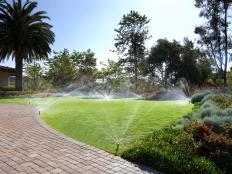The Straight Poop on Using Chicken Manure as Fertilizer


This spangled hamburg is one of eight birds in my backyard flock. As a typical laying chicken, she lays between 250 and 300 eggs a year. Over that same period of time, this typical chicken — tiny though she seems — will produce roughly 90 pounds of manure. Multiply that by 8 birds and that’s a lot of poop. For some that doesn’t mean much more than the chore of mucking out the coop a few times a year. For the home gardener, however, that manure is worth its weight in…fertilizer. Chicken manure must be used carefully, but is among the most desirable organic fertilizers and will give your garden soil a spectacular boost without spending a dime.
Build an Eco-Frendly Chicken Coop
Chicken manure is chock full of nutrients that will benefit your gardening plot. Topping the list is a healthy dose of nitrogen. While this is great news for a gardener dealing with nitrogen deficient soil, this also makes this manure very “hot.” Plants, especially young plants, that come into contact with fresh chicken manure will be “burned” by the nitrogen content and will quickly wither. Fortunately, there are several good methods for appropriately aging chicken manure for use as a fantastic natural fertilizer.
Composting
Chicken manure is a superstar for composting. It can be added to an existing compost bin, but does just fine combined with carbon-based matter such as fallen leaves or dry grass clipping and left in a pile or corralled in chicken wire bins. Left unattended, the compost will be ready for use as fertilizer in 6-12 months. Turned occasionally, waiting time is reduced to just 4-6 months.
Manure “Tea”
Fill a burlap sack with manure and weigh it down with a couple of bricks or a large rock. Place the sack in a large plastic trash can and fill the can with water. This can be a little messy, but reduces your wait time to just 3-4 weeks and yields a nutrient-packed brine than can be used to treat garden soil or water individual plants.
Off-Season Tilling
If your garden plot will be left dormant in cooler months, fresh manure can be spread over the soil at a ratio of approximately 50 pounds per 100 square feet once the fall harvest is complete. Till the plot to turn the manure into the soil. The soil will be ready to be tilled again in the spring, already packed with nutrients provided by your own backyard flock. Allow 3-4 months for the soil to temper before planting.






